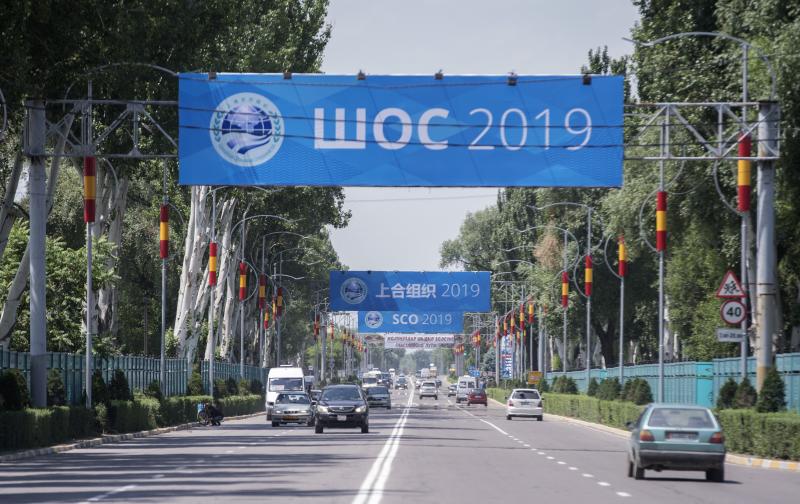SCO becoming stronger as a forum for regional cooperation
- By Sajjad Malik
 0 Comment(s)
0 Comment(s) Print
Print E-mail China.org.cn, June 12, 2019
E-mail China.org.cn, June 12, 2019

The 19th summit of Shanghai Cooperation Organization (SCO) is being held June 13-14 in Bishkek, Kyrgyzstan. Since its inception in June 2001, the group has grown to become a formidable regional entity.
China, Kazakhstan, Kyrgyzstan, India, Pakistan, Russia, Tajikistan and Uzbekistan are its eight permanent members. Afghanistan, Belarus, Iran and Mongolia have observer status, while Armenia, Azerbaijan, Cambodia, Nepal, Sri Lanka and Turkey are SCO dialogue partners.
SCO is also called the "alliance of the east" as its core lies in Eurasia. Due to its geographical contiguity, it is the largest in terms of land mass and population, its leaders representing more than 40% of the world total in the latter.
The SCO countries share over 20% of the global economy. It has heavyweight members like China and India that are among the fastest developing economies and engines of international growth.
Strategically, SCO includes regions like Central and South Asia and countries like China and Russia that provide key land routes and air corridors as well as being adjacent to busy sea-lanes.
The Belt and Road Initiative (BRI) also passes through Central Asia and South Asia before extending much further around the world.
SCO has enormous human, economic and material resources as well as opportunities to play a bigger role on the international stage. Gradually, it is moving ahead by creating clear consensus on key issues.
The organization is focusing on better connectivity, more trade and economic cooperation and cultural exchanges. Inter-SCO trade is increasing, led by China, which enjoys good trade relations with almost all SCO members.
China has long been pushing for greater economic cooperation, and, in 2010, it floated proposals for an SCO Development Bank and a Free Trade Area (FTA).
At the Qingdao summit in 2018, China once again suggested that the SCO should start feasibility studies on the FTA and hold detailed discussions for establishing the development bank.
Connectivity is the watchword for fast-track development. It is difficult to carry out trade and commercial activities across the borders without it, and the SCO is consciously seeking to address this need.
It provides a platform for members to hold bilateral meetings on the sidelines of the main conference, especially in trying to resolve political and trade issues. For example, leaders of Pakistan and India met on the sidelines of the 2015 summit in the Russian city of Ufa, and agreed to start such a dialogue.
Recently, the foreign ministers of the two countries informally met on the occasion of council of ministers meeting. The Prime Ministers of both India and Pakistan are attending the 19th summit and might interact in informal setting as no formal meeting between them is scheduled.
Several other such meetings are expected, helping various countries to come close and forge good political, diplomatic and economic relations. Good bilateral ties are important and help to achieve the organizational goals in a more predictable way.
The organization is also contributing to regional peace and its SCO-Afghanistan Contact Group is playing a positive role. The 19th summit is also expected to consider a roadmap for work of the contact group.
The Bishkek summit is a great opportunity to speed up the process of closer cooperation among members. The process that started in 2001 is on track and the 19th summit is expected to sign documents to deepen interaction between regions, strengthen fight against drug trafficking and establish cooperation in information technologies, environmental protection, health care and sports.
Sajjad Malik is a columnist with China.org.cn. For more information please visit:
http://www.keyanhelp.cn/opinion/SajjadMalik.htm
Opinion articles reflect the views of their authors, not necessarily those of China.org.cn.
If you would like to contribute, please contact us at opinion@china.org.cn.





